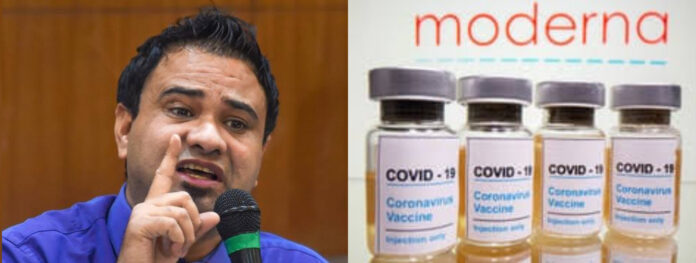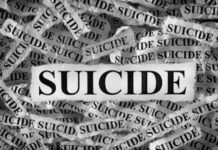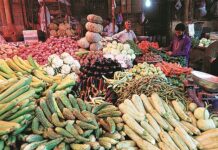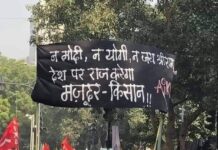As coronavirus cases surge around the world, hospitals getting overstretched and economies gasping, Within a week two good news came from two US-based companies – Pfizer (and its partner, the German company, BioNTech ) announced on 9th November 2020 that their mRNA based vaccine BNT162b2 against SARS-CoV-2 has more than 90 percent effectiveness and on 16th November 2020 Moderna claimed its mRNA based vaccine mRNA-1273 appears to be 94.5% effective – a dash of hope?
What does it mean?
The Food and Drug Administration( FDA ) had set a bar of 50 percent efficacy for vaccine -it’s far more protective than that with the claim of more than 90% effectiveness.
Currently, more than 150 corona virus vaccines are in development across the globe of which 11 has reached phase III trials mainly United States-Moderna’s (mRNA-1273), Pfizer and BioNTech’s (BNT162), Johnson & Johnson’s (JNJ-78436735), India’s Bharat Biotech and ICMR(Covaxin), United Kingdom’s Novavax (NVX CoV2373), AstraZeneca-Oxford’s (AZD1222), China’s Sinopharm(not named) and CanSino (Ad5-nCoV) are promising.
To date, just two coronavirus vaccine has been approved-both by the Russian Government. Sputnik V and EpiVacCorona but experts have raised considerable concern about both vaccine’s safety and efficacy
The fact that Pfizer and Moderna have gotten encouraging results is making experts optimistic about the entire field.
It is good news -vaccine, alongside better treatments, is the exit strategy but why I am still skeptical?
1- Is it safe? Although both have announced no serious safety concerns have been observed in any of the participants during phase III trials(barring minor side effects fatigue, muscle aches, and pain at injection-site ) -Clinical trial / Safety and additional efficacy data continue to be collected-participants will continue to be monitored for long-term protection and safety for an additional two years after their second dose and can only be firmly determined once millions of people get it.
AstraZeneca had to halt its phase III trial in September 2020 twice later to restart as some participants developed neurological symptoms recently China’s Sinovac had to stop its trial as one participant died.
The data are still preliminary and taken only after 7 days of the second dose ( Both require people to get two shots, 3-4 weeks apart ). It could be years before it is known how long a corona virus vaccine remains effective, meaning annual boosters could be a feature of future life, like the flu vaccine.
2-“Infantry wins battles but logistics wins wars,” -mRNA-based vaccines need to be stored at a very cold temperature. Both the Moderna and Pfizer vaccines are frozen but at different temperatures.
Pfizer vaccine needs to be stored at temperatures matching an Antarctic winter – a logistical nightmare nowhere on the planet does especially in India with heatwaves exceeding 50º C, scarce ultra-cold freezers, poor electric supply, and a largely rural population1. We might be successful in the cities with -Pfizer2 has announced that it will provide a “dry ice pack” container for its vaccines that can maintain a temperature of minus 70º C for up to 10 days and Moderna3 is claiming a longer shelf-life of 30 days at refrigerated temperature but certainly it’s not for rural Indian setup. The success of any COVID-19 vaccination program will critically depend on the robustness of the cold chain.
3-Will it works on children –The answer is No. Both trials have been done only on adults.
4- When this vaccination would start –Both will likely apply for emergency use authorization in the coming weeks after it collects more safety data, and then it may take weeks to know about the vaccine’s safety, effectiveness, and the companies’ ability to safely manufacture.
The vaccine could be authorized for certain high-risk populations by early next year, but that would only happen if everything goes as planned and there are no unforeseen delays.
5-Does it means we have won the battle against Coronavirus ?
The impact of COVID-19 vaccines on the pandemic will depend on several factors such as the effectiveness of the vaccines; how quickly they are approved, manufactured, and delivered; and how many people get vaccinated. It’s going to require many vaccines to meet the global demand for use across a range of populations and settings.
A vaccine will complement the other tools we have, not replace them,” WHO director-general Tedros Adhanom Ghebreyesus said. “A vaccine on its own will not end the pandemic4.
The development of new technologies, even during a global crisis, does not automatically mean access-developing countries like India may have to wait a little longer.
Supplies of the vaccine would initially be prioritized with health workers, older people and other at-risk populations-it could take several years to reach the last person: The vaccine will not going to save the world for the coming several months when the virus will take many more lives unless the government takes more stringent public health measures.
Contact tracing, testing more and more people, isolation, the quarantine will need to continue. We had to continue to follow social distancing norms, mask-wearing, and hand hygiene practices.
The author is Twice Suspended Lecturer, Department of Pediatrics, BRD Medical College, Gorakhpur, U.P































[…] Also Read: COVID-19 vaccine- Pfizer, Moderna Frenzy –Long journey ahead? […]